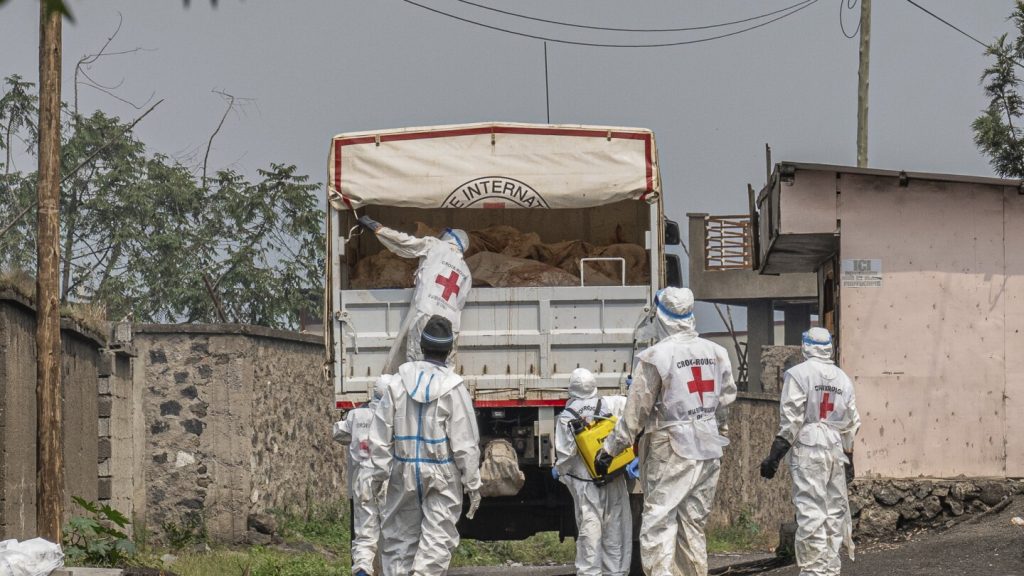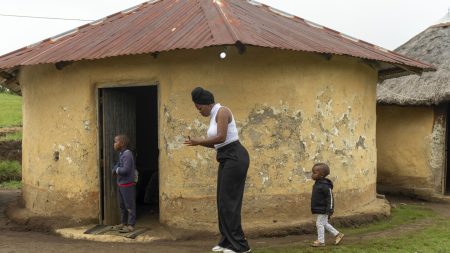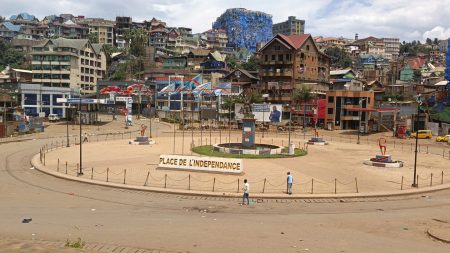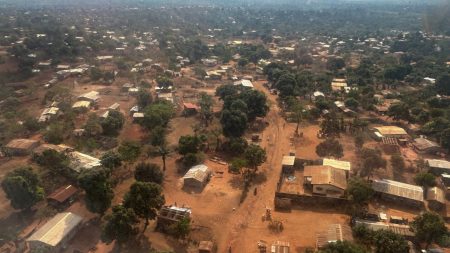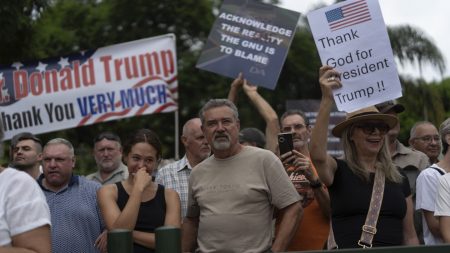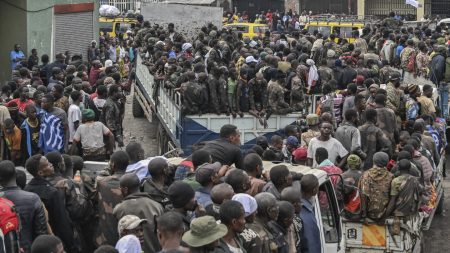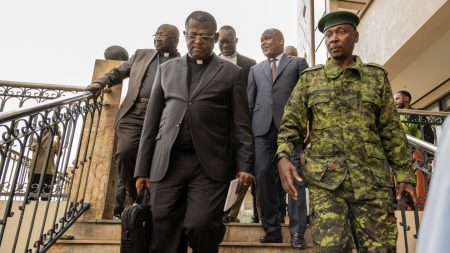A New Era in Goma: Rebels Seek to Reassure Residents Amid Growing Tensions
The city of Goma, a key urban center in eastern Congo, has found itself at the epicenter of a rapidly evolving crisis. Rwanda-backed M23 rebels, who captured the city last week with the support of Rwandan troops, held a rally at the local stadium to address the population. The event was an attempt to reassure residents and garner public support, as the rebels seek to establish a functioning administration. Corneille Nangaa, the political leader of the M23, addressed thousands of attendees, declaring that Goma had been “liberated and sanitized” and that new administrative leaders had been appointed. He emphasized security as the group’s top priority, encouraging displaced individuals to return home and promising a return to normalcy, including the resumption of school activities for children starting next week.
Despite these assurances, the mood in Goma remains tense. Emmanuel Kakule, a 26-year-old resident who attended the rally, expressed skepticism. “I came to listen to their project,” he said, “but I’m not convinced. We’re still afraid.” Such sentiments reflect the broader uncertainty among locals, who have endured years of instability and are wary of the rebels’ intentions. The M23, unlike during their brief capture of Goma in 2012, appears determined to establish a more permanent presence, with analysts suggesting they are now aiming for political power. Backed by an estimated 4,000 Rwandan troops, the group is the most formidable of over 100 armed groups operating in Congo’s mineral-rich eastern region, which is crucial for the global supply of critical technology minerals.
Advances Continue Despite Unilateral Ceasefire
The M23’s capture of Goma was followed by a unilateral ceasefire announcement earlier this week, ostensibly to facilitate humanitarian aid. However, the Congolese government dismissed the move as a “false communication,” pointing to continued rebel advances in the region. By Thursday, the rebels were reportedly advancing into South Kivu province, coming within 50 kilometers of the provincial capital, Bukavu. This has sparked widespread fear, with many residents fleeing to nearby villages. Public transportation has become scarce, forcing some to trek for hours with their children and belongings. The rebels also seized a town in a mineral-rich area just a day after declaring the ceasefire, further undermining its credibility.
The situation in Bukavu is increasingly dire, with tensions running high as the M23 draws closer. The advance has disrupted life in the region, leaving many on edge. The ceasefire announcement has done little to alleviate concerns, as the rebels continue to expand their territorial control. Meanwhile, the Congolese government remains skeptical of the M23’s intentions, viewing their actions as a tactic to consolidate power rather than a genuine commitment to peace.
Humanitarian Toll Mounts: Aid Workers Killed, Medical Services Disrupted
The humanitarian impact of the conflict continues to grow, with three Congolese employees of Swiss Church Aid killed during a mission in North Kivu’s Rutshuru territory, about 40 miles from Goma. The group, which has suspended other projects in the province, condemned the attack as a “serious violation of international humanitarian law.” The incident underscores the risks faced by aid workers in the region, where armed groups operate with impunity.
In addition to the loss of life, the rebellion has disrupted critical medical services. The National Institute of Biomedical Research lab in Goma, a high-security facility involved in the surveillance and control of infectious diseases such as Ebola and mpox, has Seen its operations severely impacted. Yap Boum II, a manager at the Africa Centers for Disease Control and Prevention, warned that the collection of disease samples has been disrupted, and dozens of mpox patients have fled treatment centers, raising the risk of further disease spread. Boum called for the decentralization of laboratory capacity in the region to mitigate such risks in the future.
International Calls for Peace: UN Chief Appeals for Mediation
The United Nations has sounded the alarm over the escalating crisis, with Secretary-General Antonio Guterres urging the M23 rebels and their Rwandan backers to “silence the guns” and pursue mediation. Guterres emphasized that there is no military solution to the conflict, which has displaced millions and fueled widespread human rights abuses, including sexual violence, forced recruitment, and disruptions to lifesaving aid. The UN chief announced plans to attend a meeting of the African Union Peace and Security Council in Addis Ababa next week, where the crisis will be a key agenda item.
The situation in Goma and beyond remains fraught with danger, particularly for the displaced populations who relied on the city as a humanitarian hub before its capture. The UN and aid organizations have expressed deep concern over the safety of these vulnerable individuals, many of whom are now at greater risk due to the breakdown of essential services and the ongoing fighting.
Regional responses: Peacekeepers’ Withdrawal and Calls for Dialogue
While the UN and international community call for peace, regional actors are taking divergent approaches. Malawi’s President Lazarus Chakwera has directed his country’s peacekeepers to begin preparing for withdrawal, citing the rebels’ ceasefire declaration and the need to pave the way for negotiations. The move comes after at least three Malawian troops and 14 South African soldiers were killed in the fighting. However, South Africa’s President Cyril Ramaphosa has pledged to keep his country’s peacekeepers in Congo, reaffirming a commitment to a peaceful resolution of what he called “one of the world’s most intractable conflicts.”
The regional dynamics are set to take center stage at an upcoming summit of African leaders in Tanzania, where the conflict in eastern Congo will be a focal point. President Ramaphosa has previews the discussions, stating that leaders will reiterate calls for a ceasefire and the resumption of dialogue. The summit offers a critical opportunity for the international community to align on a path forward, though the complexity of the crisis and the multitude of armed groups involved pose significant challenges to achieving lasting peace.
In summary, the situation in eastern Congo remains volatile, with the M23 rebels attempting to establish legitimacy in Goma even as they continue their military advances. The humanitarian toll is mounting, and the international community is urging restraint and dialogue. But for residents like Emmanuel Kakule, the uncertainty and fear persist, underscoring the need for urgent action to stabilize the region.





